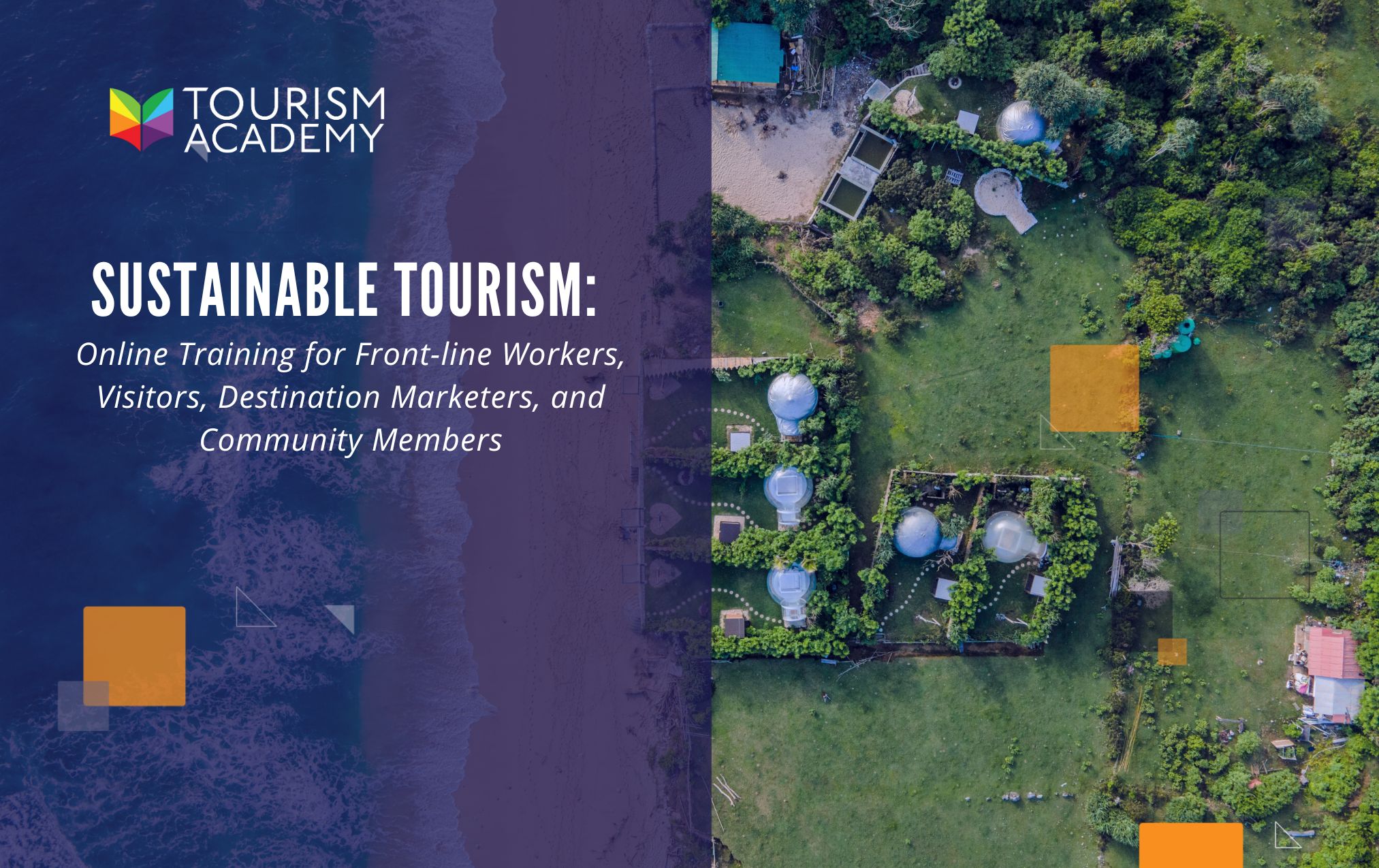
Sustainable Tourism: Online Training for Front-line Workers, Visitors, Destination Marketers, and Community Members
Sustainable tourism is not just a buzzword; it's a crucial concept for preserving our planet and ensuring the longevity of the tourism industry. Teaching sustainability principles to various stakeholders in the tourism ecosystem is pivotal for creating a positive impact. This article explores the keys to teaching tourism sustainability to front-line workers, visitors, destination marketers, and community members while emphasizing why online training is the most effective approach.
The Importance of Sustainable Tourism:
Sustainable tourism involves minimizing negative environmental impacts, preserving local culture, and supporting economic growth. It is a collective effort that requires involvement from all stakeholders. By teaching sustainability, we can ensure that tourism remains a force for good, benefiting communities, visitors, and the planet.
Keys to Teaching Tourism Sustainability:
-
Education and Awareness: Education is paramount to instill sustainability in tourism. Front-line workers, visitors, destination marketers, and community members should be aware of the environmental and cultural challenges that tourism can pose. This awareness forms the foundation for change.
-
Tailored Training Programs: Different stakeholders have unique roles and responsibilities in the tourism industry. It's essential to design training programs tailored to each group's specific needs and concerns. For instance, front-line workers may need training on eco-friendly practices, while destination marketers should promote sustainable options.
-
Community Engagement: Involving local communities in sustainability is crucial. They have a vested interest in preserving their environment and culture. By teaching them about the benefits of sustainable tourism, we empower them to be advocates for positive change.
-
Best Practices Sharing: Encouraging the sharing of best practices is a key to success. When stakeholders learn from one another, it fosters a culture of continuous improvement. This can be done through workshops, webinars, and forums.
-
Metrics and Measurement: Measuring the impact of sustainability initiatives is essential. Implementing key performance indicators (KPIs) allows stakeholders to see the direct results of their efforts. This data-driven approach keeps everyone accountable and motivated.
Why Online Training is Ideal:
Online training is optimal for teaching tourism sustainability to a diverse audience. Here's why:
-
Accessibility: Online courses can be accessed from anywhere in the world. This accessibility is vital for a sector as dynamic as tourism, where people are constantly moving.
-
Flexibility: Online training offers flexibility in terms of scheduling. Front-line workers, busy destination marketers, and community members can access the material conveniently.
-
Cost-Efficiency: Online training reduces the need for physical resources, making it a cost-effective option for nonprofits like the Tourism Academy.
-
Scalability: Online courses can easily accommodate many participants. This is especially important when training a broad range of stakeholders.
-
Interactive Learning: Online courses can incorporate multimedia elements, quizzes, and discussions to engage learners actively. This makes the learning process more enjoyable and effective.
Conclusion:
Sustainable tourism is a shared responsibility that necessitates the participation of front-line workers, visitors, destination marketers, and community members. Teaching sustainability principles through tailored online training programs is a powerful way to make this happen. Educating and empowering stakeholders to embrace sustainable tourism will pave the way for a more responsible, ethical, and eco-friendly travel industry, ensuring its long-term viability and improving our world.


Leave a comment